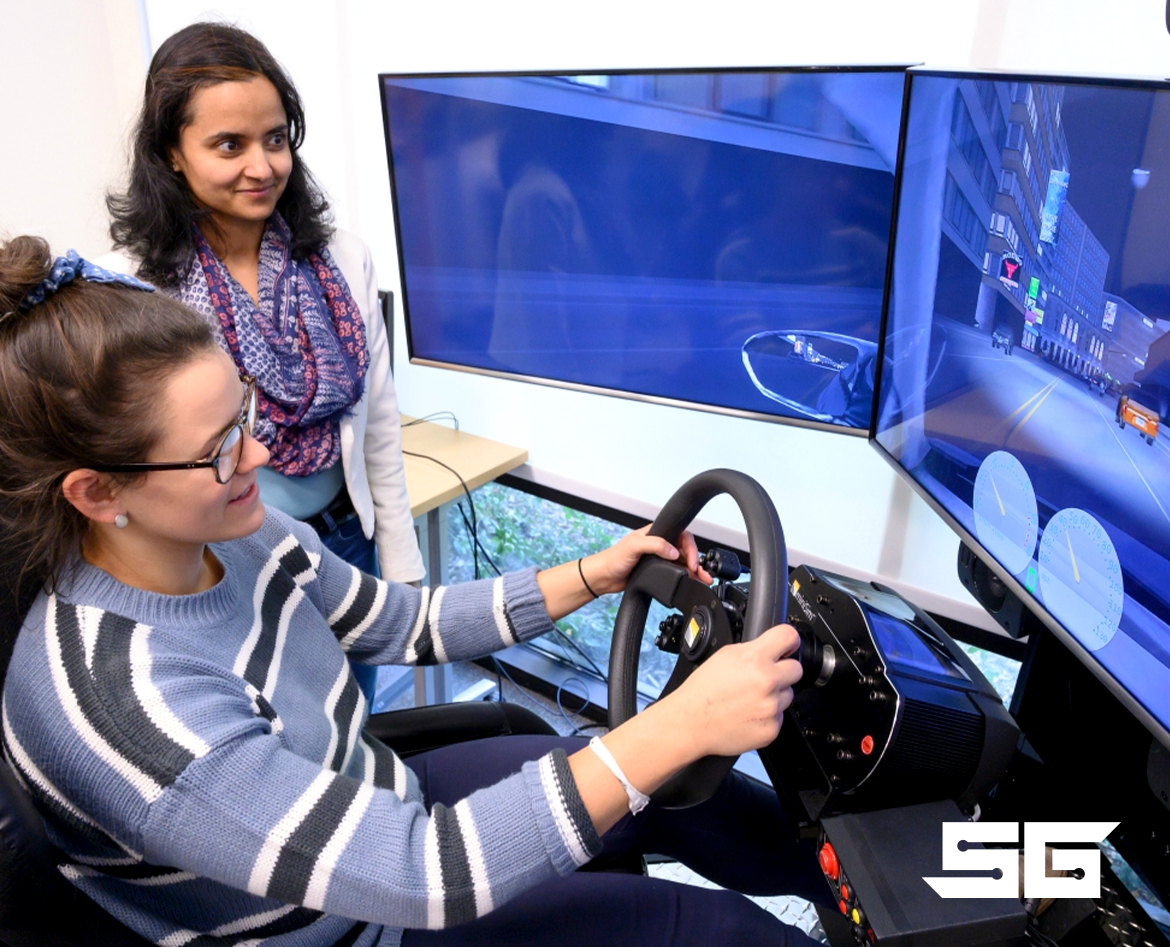More Than Just Gaming
SimGear is always looking for new spaces and applications for our simulators. While we are proud of our industry-leading status in commercial racing simulations, our simulators have many other useful applications as well.
One field of study that has approached SimGear was medical researchers who aimed to utilize our simulators to study the brain after traumatic brain injuries such as strokes. SimGear was happy to help by providing our simulators to Colorado State University and Loyola Marymount University neurological studies.
What Are the Researchers Looking For?
The researchers focused on the effects of traumatic brain injury (TBI) and strokes. TBI and strokes can be some of the most debilitating and damaging things that can happen to a person, as they can greatly affect motor control and make daily tasks that were previously very simple a difficult challenge.
Researchers at CSU and Loyola Marymount studied how TBI and strokes impacted the motor skills of people affected by them. They also tested thes use of realistic driving simulators on those people to see how the simulators would affect their recovery.
Brendan Smith, an assistant professor of mechanical engineering at
Loyola Marymount told Digital Trends, “I am in the early stages of a research project that will investigate the use of driving simulators, such as the SimGear GT, for stroke recovery. The research aims to see if training with simulators that provide motion feedback is more effective than the current clinical standard, which often uses fixed-base simulators.”
For Neha Lodha, an assistant professor in the Department of Health and Exercise Science at CSU and director of the Laboratory of Movement Neuroscience and Rehabilitation, her research team tested grip strength and grip motor control among high-functioning stroke survivors utilizing SimGear simulators combined with miniSim, a research-grade software.
Why SimGear?
SimGear was chosen because of the realistic feedback it can provide. As previously mentioned, researchers at Loyola Marymount were particularly interested in seeing if the effects of a more realistic experience are better for the mind than those of traditional static simulators. For the research at CSU, it was important to use simulators that mimicked the real world as accurately as possible.
“Most simulators currently used for therapy are of the fixed-base variety,” said Smith. “These simulators do not provide the motion feedback that is becoming the gold standard among the sim racing community. Without this feedback, driving is reduced from the rich interplay of visual, haptic, and vestibular sensations into a taxing visual exercise. Fixed-base simulators may be inadequate clinical practice because they neglect fundamental driving skills that patients relied on before a stroke.”
Their theory is that many of the reflexes that people once had before the stroke are now being interrupted. Putting patients in simulators allows researchers to test this theory without putting them in the actual vehicle. A controlled simulation is easier for the researchers and safer for the patient.
For Lodha, this ability to retrain driving reflexes without having to put patients in an actual vehicle is extremely valuable as it’s creating an argument for insurance companies to provide this sort of rehab for high-functioning stroke survivors.
“Typically, insurance companies will not provide rehab for high-functioning stroke survivors,” said Lodha. “Our work is beginning to build an argument for the persistence of motor impairments and therefore the need for rehab for this group.”
Our founder, Zach Davis, said this about the study, “I have a few family members who have had strokes. It’s amazing to be able to be a part of this project knowing it could help others in the future and understand more about the aftereffects of a stroke,” Davis said. “Now that they have the simulator, I look forward to seeing what other studies they use it for because now everyone has access to it at their facility.”
While the original intention of SimGear is to provide a fun and realistic racing simulator, we are excited to branch out into more diverse fields as well, especially in areas that can help improve people’s quality of life. SimGear looks forward to working with future research projects, where we will aim to provide the most realistic simulation experience possible.



